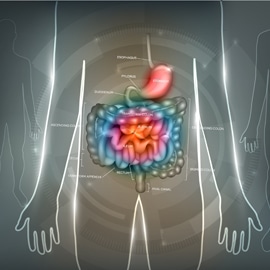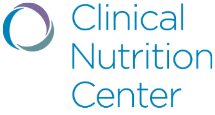Probiotics
Posted: Mar 01 in Health And Wellness by Dr. Lazarus
 Our bodies are constantly exposed to the environment. These days, we consume more sugar, trans-fats, and highly processed foods than ever before, not to mention foods that have been genetically modified and/or treated with antibiotics.
Our bodies are constantly exposed to the environment. These days, we consume more sugar, trans-fats, and highly processed foods than ever before, not to mention foods that have been genetically modified and/or treated with antibiotics.
Symbiotic bacteria living in our digestive system are responsible for helping us digest our foods, absorb nutrients and aids in the production of vitamins (B and K). Collectively, we call these our microbiota. Changes in our food chain have led to changes in our microbiota. These changes compromise digestion and metabolism and can even cause cravings for sugar and/or alcohol. Gut health is important for everyone, not just people with digestive disorders.
Unfortunately, our current daily lifestyle can contribute to unhealthy gut flora due to:
- Diets high in refined carbohydrates, sugar and processed foods
- Antibiotics, anti-inflammatory medications and birth control pills
- Chronic stress
- Chronic infections
By now, we have all heard about probiotics, but do we know what the benefits are and if we should supplement with them?
What are probiotics and what are the benefits?
Probiotics are live cultures of “good” bacteria that help support overall health, assist with balancing our gut flora and repopulate intestinal bacteria. This is important because your gastrointestinal tract plays a huge role in your immune system.
What does the research suggest?
Recent evidence is now suggesting that the gut microbiota is involved in the development of obesity.
While research continues in this area, certain strains of Lactobacillus and Bifidobacterium seem to have beneficial effects on metabolism, reducing body weight and fat mass, and improving glucose levels. In one clinical trial, supplementation with a probiotic reduced abdominal fat and increased antioxidant enzyme activity more than dietary intervention alone.
| Strain of Bacteria | Description | Role |
| Lactobacillus | The most important bacteria that lives in the small intestine. Lactobacillus is responsible for producing lactase which is the enzyme that breaks down lactose (the sugar in milk). Lactobacillus is considered a friendly bacterium that can help break down food, absorb nutrients, and fight off “unfriendly” organisms. |
Overall digestion Nutrient absorption Relief from occasional cramping, diarrhea, and gas |
| Bifidobacterium | Bifidobacterium line the walls of the large intestine. These bacteria can help kill harmful bacteria and other microorganisms such as yeast. Bifidobacterium produce lactic acid, which provides up to 70 percent of the energy required by cells that line the intestinal wall. Bifidobacterium also facilitate an environment that enhances the absorption of many minerals such as magnesium, iron, copper, and calcium. Bifidobacterium can synthesize (produce) several B group vitamins |
Overall digestion Immune health Help reduce the occurrence of antibiotic-associated diarrhea |
How can I restore and maintain my gut flora?
- Consume foods that naturally contain probiotics- yogurt, kefir, sauerkraut, tempeh, kombucha, and kimchi
- Supplement your diet with a trusted probiotic
- Consume more whole/nutrient-dense foods
- Take steps to manage stress in your daily life
CNC now carries a high quality probiotic to support the gut health of our patients! Please talk to your Registered Dietitian with any questions.
By Kristen Coggins, RDN

Please provide list of nutrient dense foods.
Foods rich in probiotics include: Yogurt, Kefir, Sauerkraut, Dark Chocolate, Microalgae, Miso Soup, Pickles and Tempeh.
Nutrient-dense foods include: Salmon, Kale, Seaweed, Garlic, Shellfish, Potatoes, Liver and Sardines.